
NATO and beyond: America’s domestic politics and Ukraine
Mark Leonard welcomes Jeremy Shapiro to discuss America’s next policy moves as it responds to Russia’s war in Ukraine
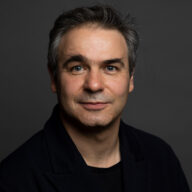
Director
Geopolitics and Geoeconomics; China; EU-Russia relations; transatlantic relations; EU politics and institutions; public diplomacy and nation branding; UK foreign policy
English, French, German
Mark Leonard is co-founder and director of the European Council on Foreign Relations, the first pan-European think–tank. He is also the current Henry A Kissinger chair in foreign policy and international relations at the US Library of Congress, Washington DC. His topics of focus include geopolitics and geoeconomics, China, EU politics and institutions.
Leonard hosts the weekly podcast “Mark Leonards’s World in 30 Minutes” and writes a syndicated column on global affairs for Project Syndicate. Previously he worked as director of foreign policy at the Centre for European Reform and as director of the Foreign Policy Centre, a think-tank he founded at the age of 24 under the patronage of former British Prime Minister Tony Blair. In the 1990s, Leonard worked for the think-tank Demos where his Britain™ report was credited with launching Cool Britannia. Mark has spent time in Washington, D.C. as a Transatlantic Fellow at the German Marshall Fund of the United States, and in Beijing as a visiting scholar at the Chinese Academy for Social Sciences.
He was Chairman of the World Economic Forum’s Global Agenda Council on Geoeconomics until 2016.
Honoured as a “Young Global Leader” of the World Economic Forum, he spends a lot of time helping governments, companies, and international organisations make sense of the big geo-political trends of the twenty-first century. He is a regular speaker and prolific writer and commentator on global issues, the future of Europe, China’s internal politics, and the practice of diplomacy and business in a networked world. His essays have appeared in publications such as Foreign Affairs, the Financial Times, the New York Times, Le Monde, Süddeutsche Zeitung, El Pais, Gazeta Wyborcza, Foreign Policy, the New Statesman, the Daily Telegraph, The Economist, Time, and Newsweek.
As well as writing and commenting frequently in the media on global affairs, Leonard is the author of best-selling books. His first book, Why Europe will run the 21st Century, was published in 2005 and translated into 19 languages. Leonard’s second book, What does China think? was published in 2008 and translated into 15 languages. He has published an edited volume on Connectivity Wars and in September 2021, his latest book on this topic The Age of Unpeace. How Connectivity Causes Conflict was released.

Mark Leonard welcomes Jeremy Shapiro to discuss America’s next policy moves as it responds to Russia’s war in Ukraine

Mark Leonard welcomes Angela Zhang to discuss China’s Big Tech regulation
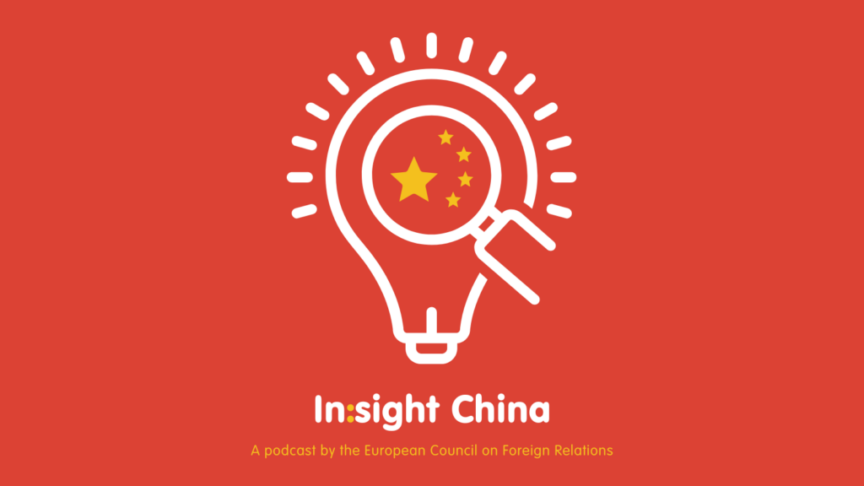
Mark Leonard welcomes Angela Zhang to discuss China’s big tech regulation

Mark Leonard welcomes Andrew Wilson to discuss political technology and the globalisation of political manipulation

Mark Leonard welcomes Robbie Diamond and Janka Oertel to discuss de-risking and the future of Europe’s green industries

Mark Leonard welcomes Enrico Letta to discuss the future of Europe’s single market

Mark Leonard welcomes Célia Belin, Piotr Buras, Jana Puglierin, Maria Simeonova, José Ignacio Torreblanca, and Arturo Varvelli to discuss the European Parliament elections and the future of European politics
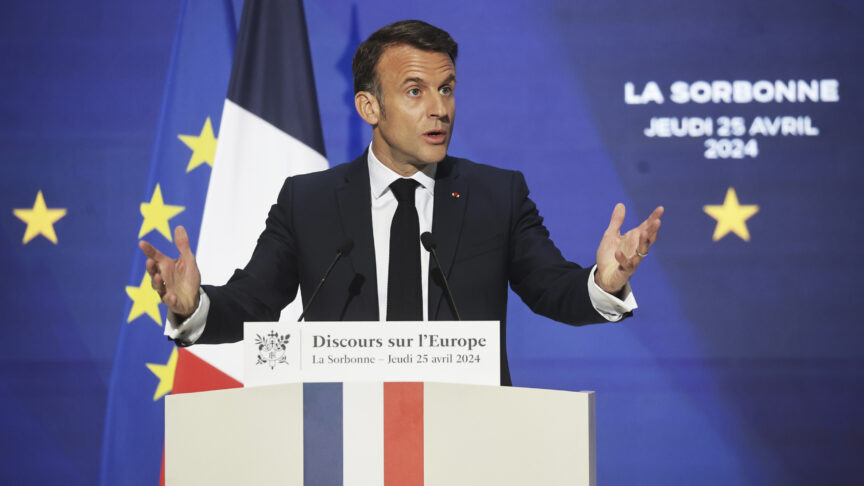
Underlying all the problems that Europe faces in a new age of geopolitical, economic, and climate insecurity is a crisis in leadership. Judging by his recent speech at the Sorbonne, French president Emmanuel Macron could be the politician to supply it, but only if he abandons his standard political playbook

Mark Leonard welcomes Dmitri Alperovitch to discuss US-China competition and the likelihood of a Chinese invasion of Taiwan
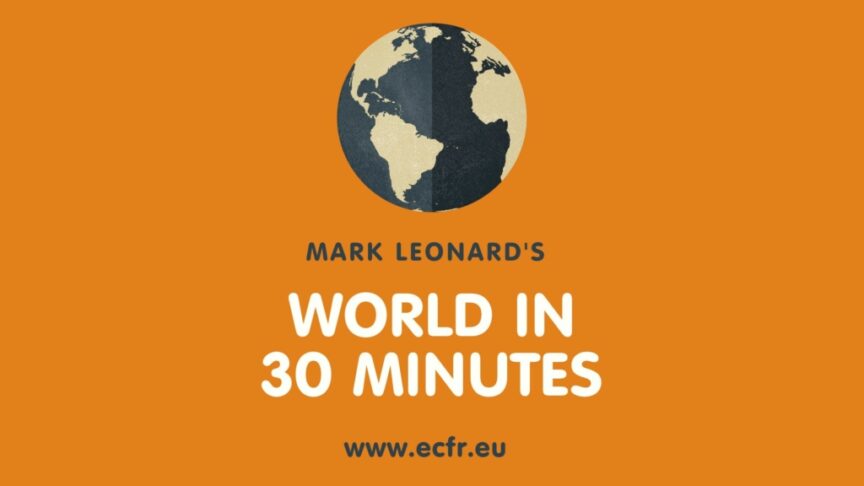
Mark Leonard welcomes Hugh Lovatt and Muhammad Shehada to discuss the war in Gaza and the prospects for Palestinian statehood
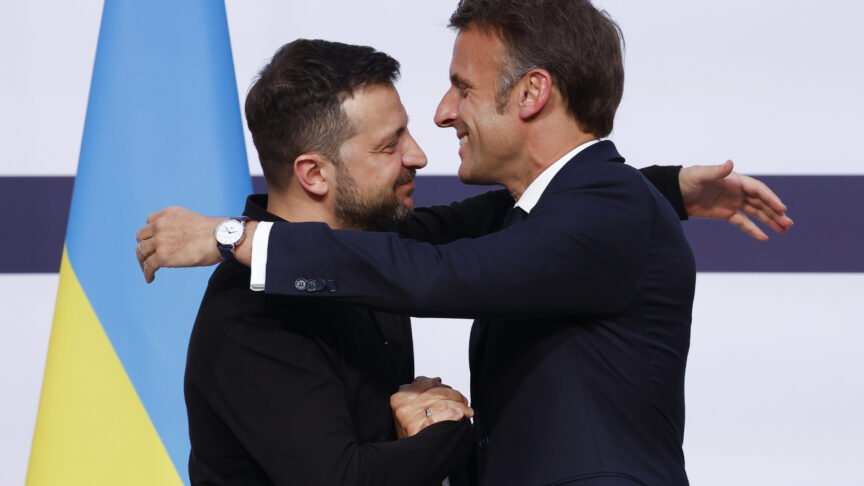
New research confirms Ukrainians’ determination to fight and Europeans’ steady support for Kyiv. But a major divide lurks beneath this appearance of unity

China’s ideas could become the country’s next big export. The Idea of China examines Chinese thinking about global order, AI, demographic change, and more – and considers how these ideas could influence the world
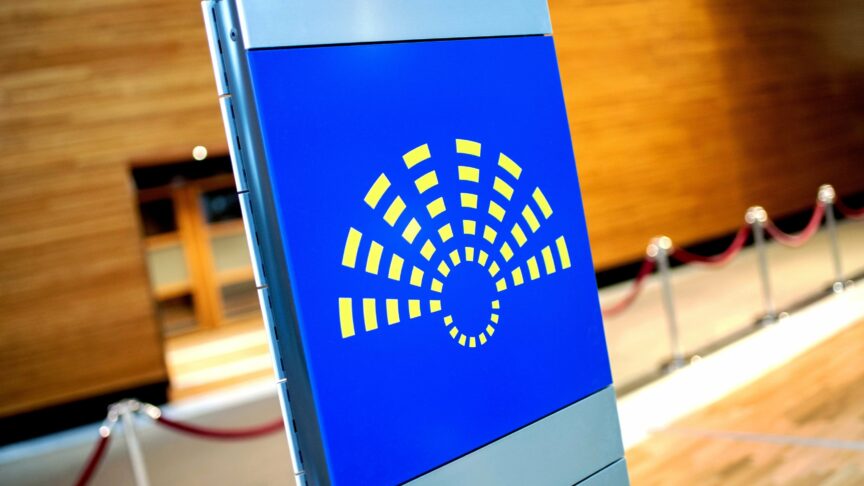
Mainstream parties are hoping to prevent an anticipated far-right surge in this year’s European Parliament election. But the results of ECFR’s latest opinion poll suggest their current strategy could backfire – and what they should do instead
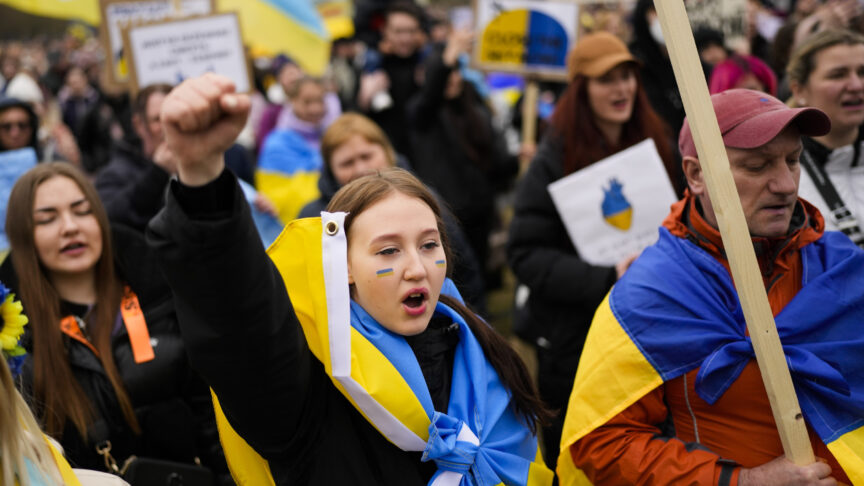
As Russia’s war on Ukraine approaches its second anniversary, European leaders need to prevent Vladimir Putin from capitalising on war fatigue in the West. To maintain public support for backing Kyiv in this crucial election year, they should make clear that a Russian victory is not peace
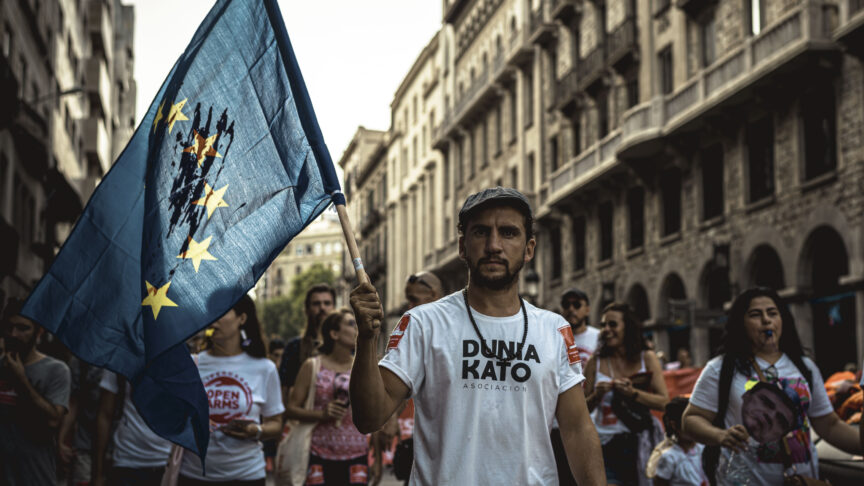
European politics is divided between ‘crisis tribes,’ formed from different traumas. Climate and migration are set to be especially influential in this year’s European Parliament election
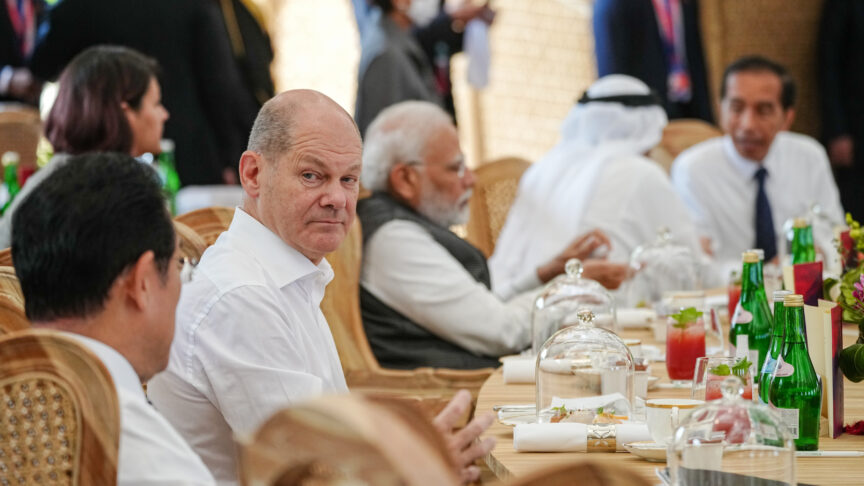
A new global opinion poll for ECFR reveals that many people outside the West want Europe and the US in their lives for all they have to offer – but that does not translate into full political alignment. People instead prefer an a la carte arrangement, in which their governments pragmatically select their partners depending on the matter at hand
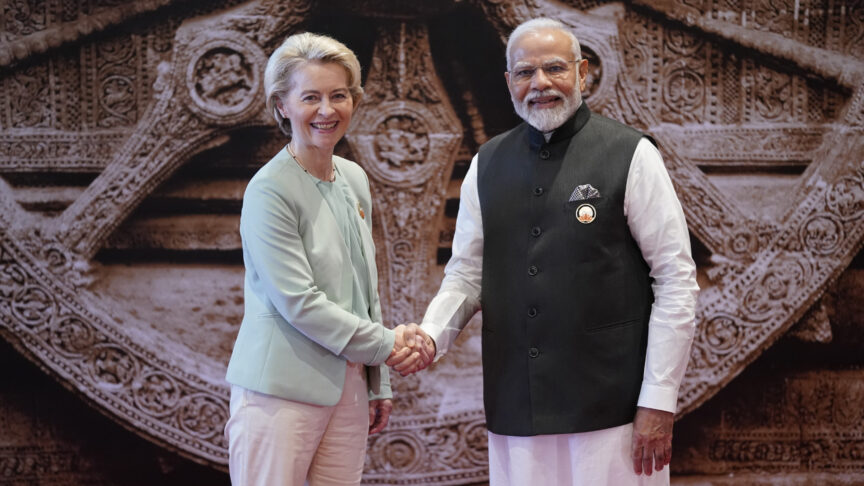
Middle powers are shaping a fragmented world for which Europe is ill prepared. To protect its interests and values, the EU needs a foreign policy strategy that emphasises its wide range of interdependencies
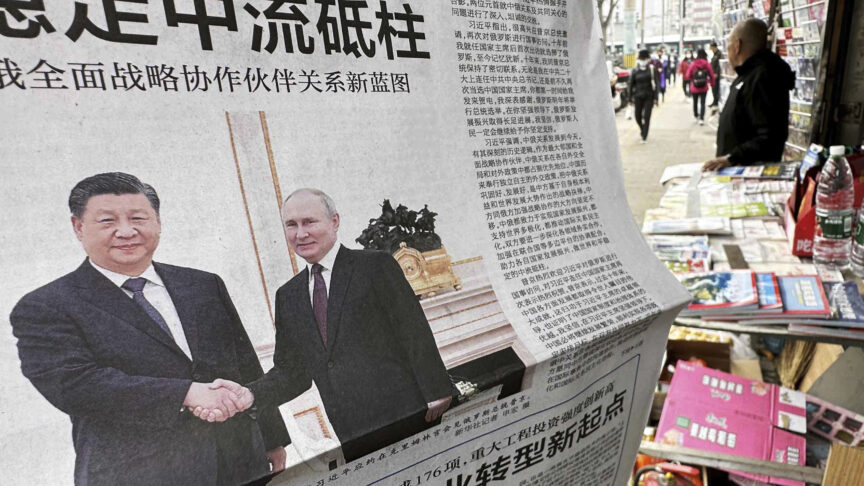
Chinese thinkers are drawing four key lessons from Russia’s war on Ukraine, informing their views on: America, Russia, Taiwan, and economic interdependence with the West
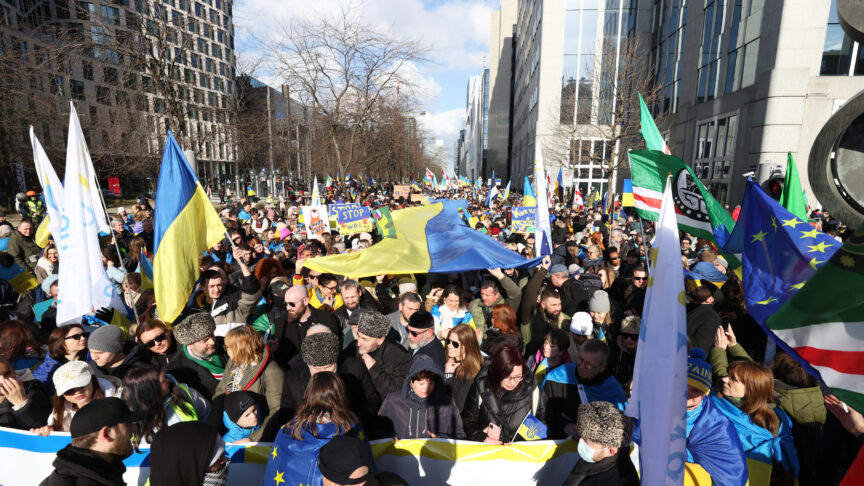
Recent polling for ECFR suggests that Europeans have come closer together in their support for Ukraine. But the factors driving this unity are fragile, contingent, and may not last
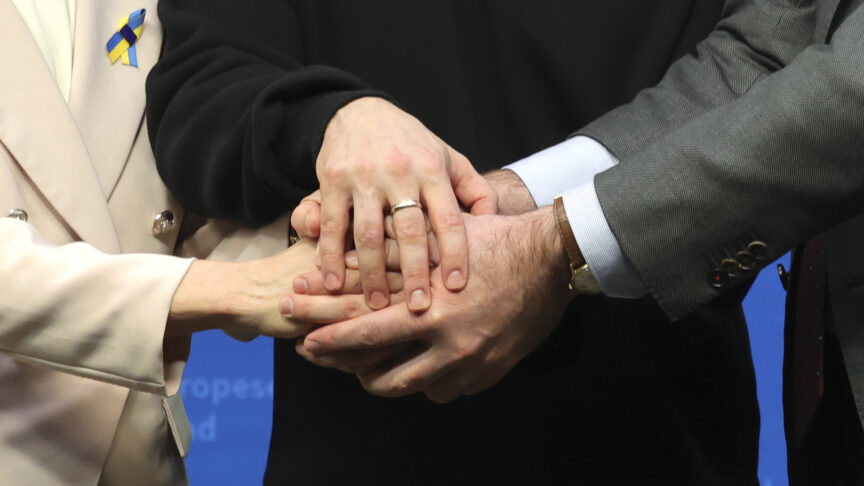
New polling for ECFR reveals the West is consolidating – while facing an increasingly post-Western world, in which powers such as India and Turkiye are readier than ever to act independently

When the UK’s prime minister hosts other European leaders this week, their old protector will be absent. A shared approach to security is now vital
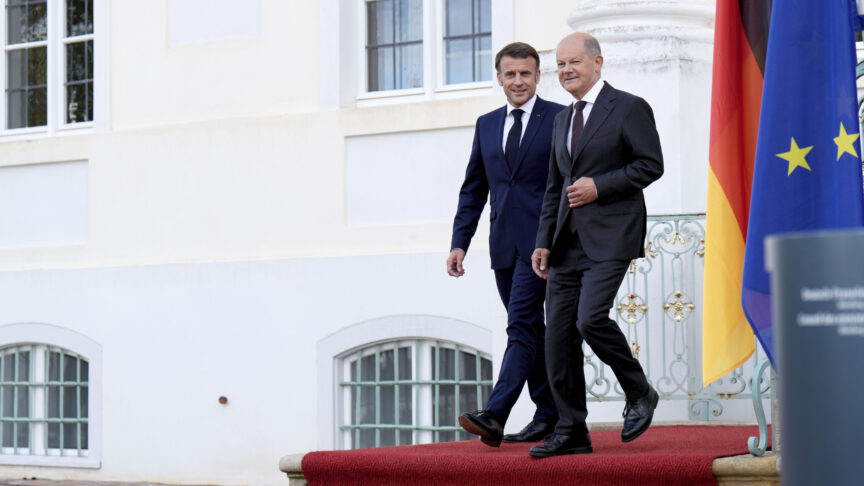
Given the state of the world today, it is difficult to imagine a worse time for Europe to be left rudderless. But with little room to manoeuvre after the European Parliament election, French president Emmanuel Macron and German chancellor Olaf Scholz are in no position to steer the EU through major challenges
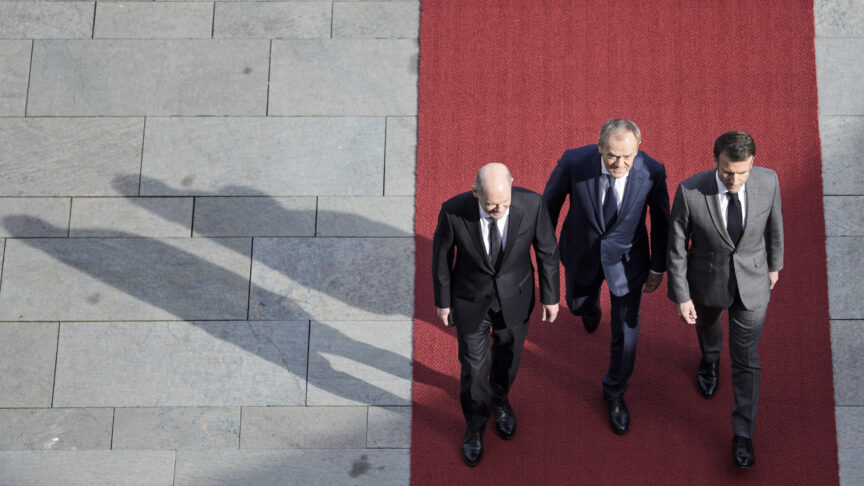
While the traditional Franco-German axis has fallen short of providing the kind of unifying leadership that the EU so desperately needs, the addition of Poland could change everything. And should Donald Trump win the US presidential election, this triumvirate would become Europe’s best hope for salvation

Underlying all the problems that Europe faces in a new age of geopolitical, economic, and climate insecurity is a crisis in leadership. Judging by his recent speech at the Sorbonne, French president Emmanuel Macron could be the politician to supply it, but only if he abandons his standard political playbook
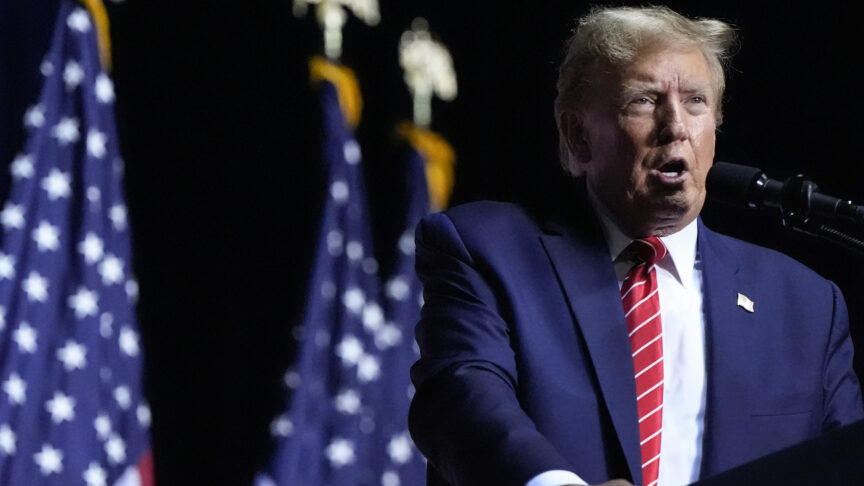
European countries have been slow to recognise the potential implications of Donald Trump returning to the White House in 2025. Over the next six months, they must figure out how to secure essential ammunition, bolster their defence funding, and sustain support for Ukraine in the absence of US aid
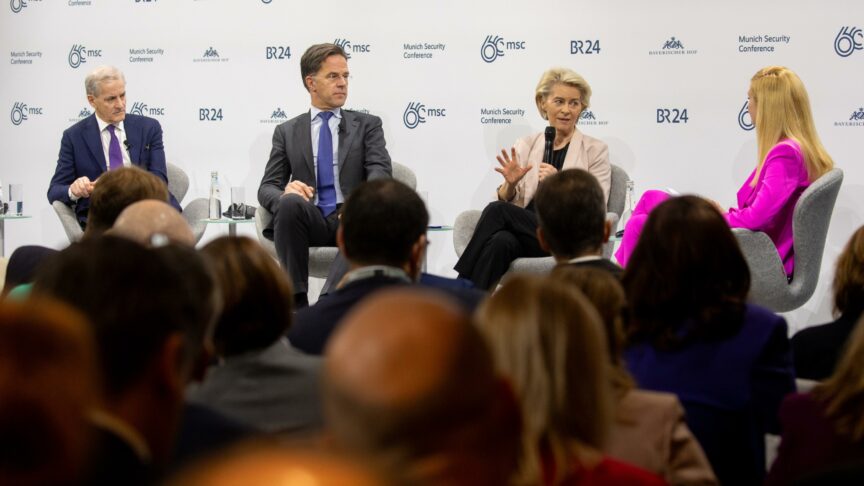
If disaster can be averted in this year’s US presidential election, a second-term Biden administration will be able to count on a much better partner in Europe, owing to the mobilising effect of Donald Trump’s candidacy. European leaders are finally realising that they urgently need to get their act together
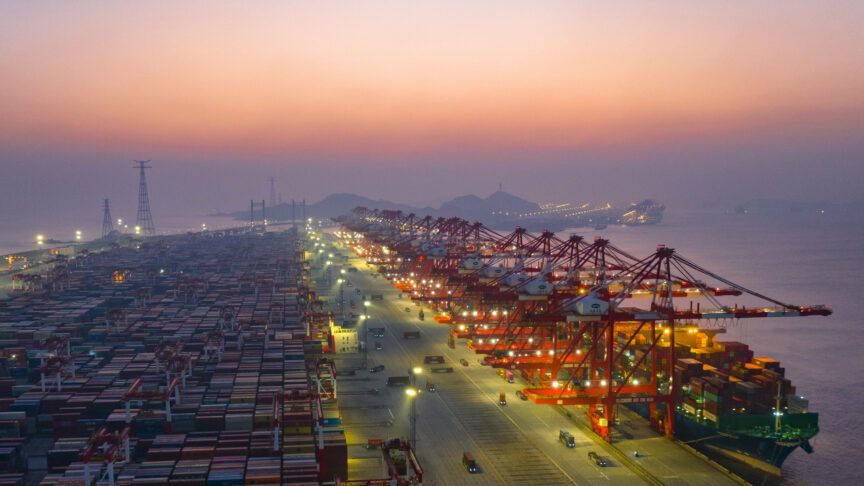
Two decades ago, China’s reformist economists walked the halls of power and dictated policy. Now, they have been sidelined in favour of a new priority: national security. What happened?
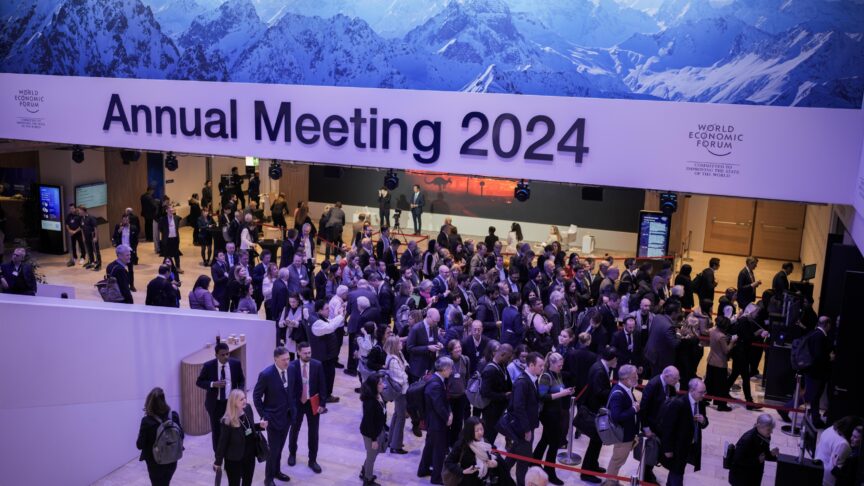
Today’s global crises are not only competing for policymakers’ finite attention, they are increasingly feeding one another in unpredictable ways. Add the uncertainty around this year’s high-stakes elections in the US and elsewhere, and you have a recipe for a Davos meeting defined by angst and paralysis

Ten predictions for the foreign policy trends of 2024, and a little bonus
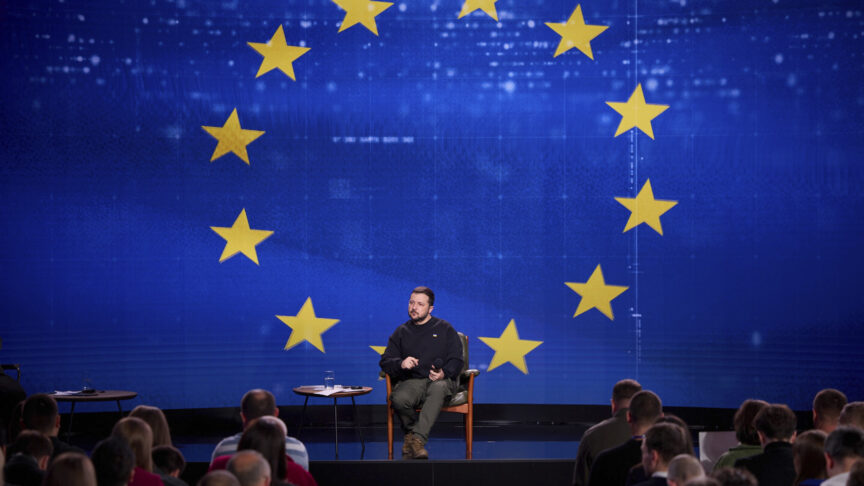
The European Union’s decision to start accession talks with Ukraine represents a symbolic victory rather than a practical one. With Ukraine struggling to secure crucial aid, and its counter-offensive failing to achieve its objectives, it is time to redefine what constitutes a Ukrainian victory and a Russian defeat
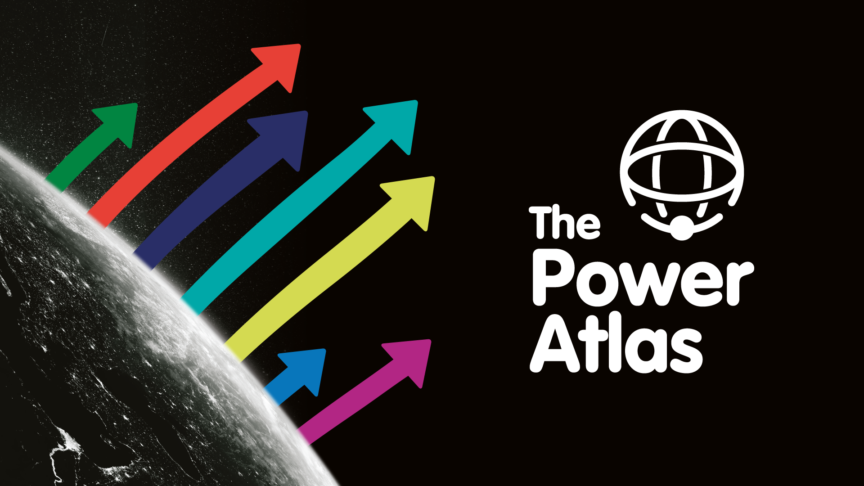
Power is now defined by control over flows of people, goods, money, and data, and via the connections they establish. Only states that see the new map of geopolitical power clearly will be able to control the modern world
New ECFR/YouGov research reveals huge fluidity in current voting intentions: 70 percent of Europeans certain to vote are yet to make their choice. Nearly 100m swing voters are up for grabs
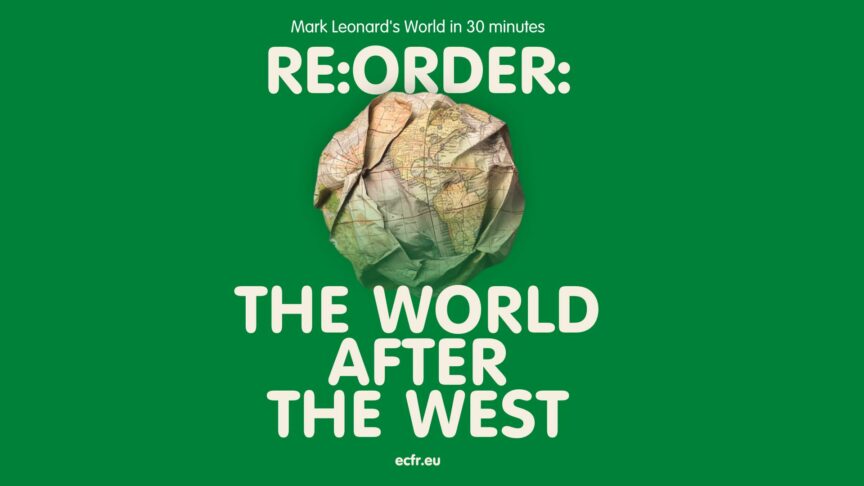
Mark Leonard welcomes to Pramit Pal Chaudhuri to discuss India as a middle power

Mark Leonard welcomes Célia Belin to discuss the results of the French election

Mark Leonard welcomes Laurence Boone, Julian King and Ivan Rogers to discuss the results of the UK elections

Mark Leonard welcomes Nasser Hadian to delve into Iran’s geopolitical positioning

Mark Leonard welcomes Ayşe Zarakol to talk about global order and Turkey

Mark Leonard welcomes Jeremy Shapiro to discuss America’s next policy moves as it responds to Russia’s war in Ukraine

Mark Leonard welcomes Angela Zhang to discuss China’s Big Tech regulation

Mark Leonard welcomes Angela Zhang to discuss China’s big tech regulation

Mark Leonard welcomes Andrew Wilson to discuss political technology and the globalisation of political manipulation

Mark Leonard welcomes Robbie Diamond and Janka Oertel to discuss de-risking and the future of Europe’s green industries
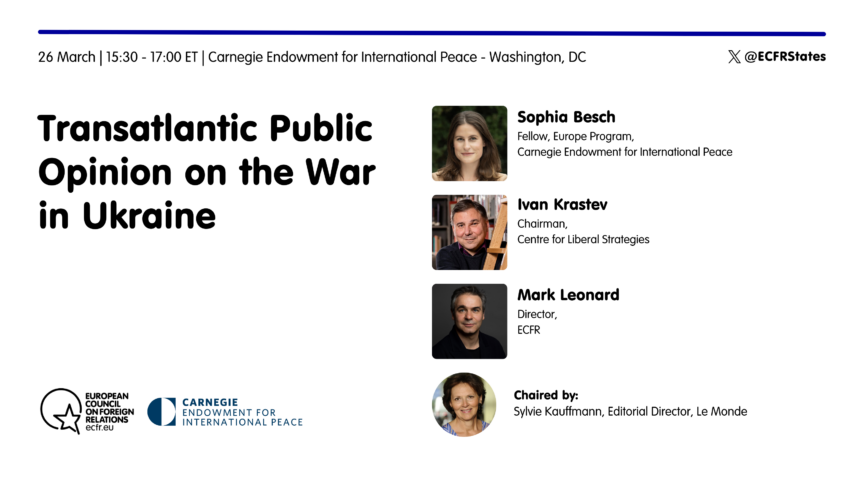
In celebration of the opening of the ECFR Washington office, this public panel will look at the state of public opinion on the war in…
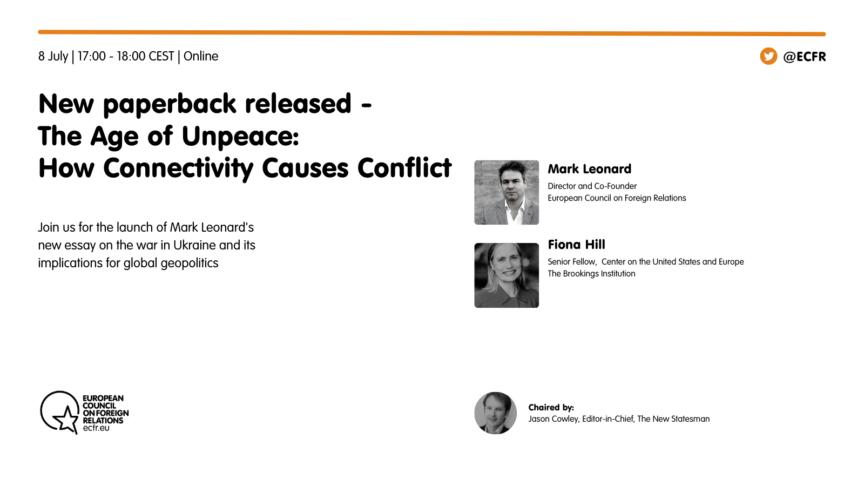
Mark Leonard will launch his newly released paperback edition of his book – The Age of Unpeace: How Connectivity Causes Conflict (Penguin) with a brand-new essay on the war in Ukraine and its implications for geopolitics
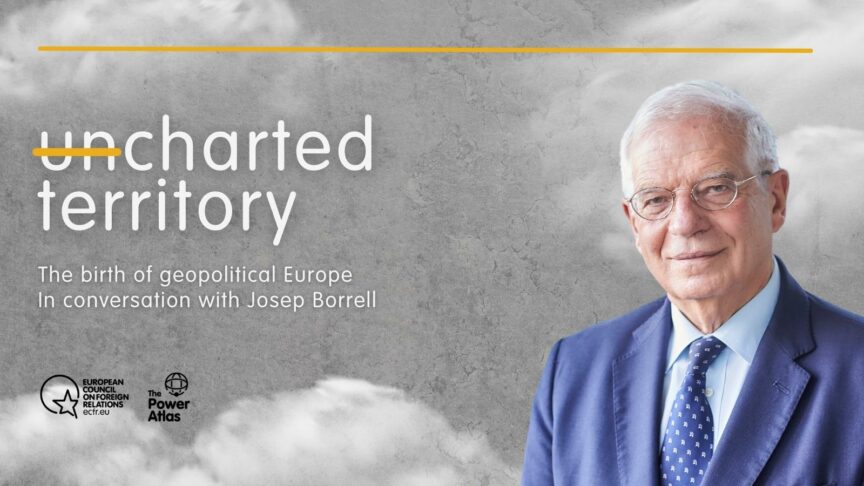
With the EU’s High Representative as our honoured guest, the panel will explore the birth of a geopolitical Europe and the new dimensions of European power with a focus on the tech, economic, and security terrains
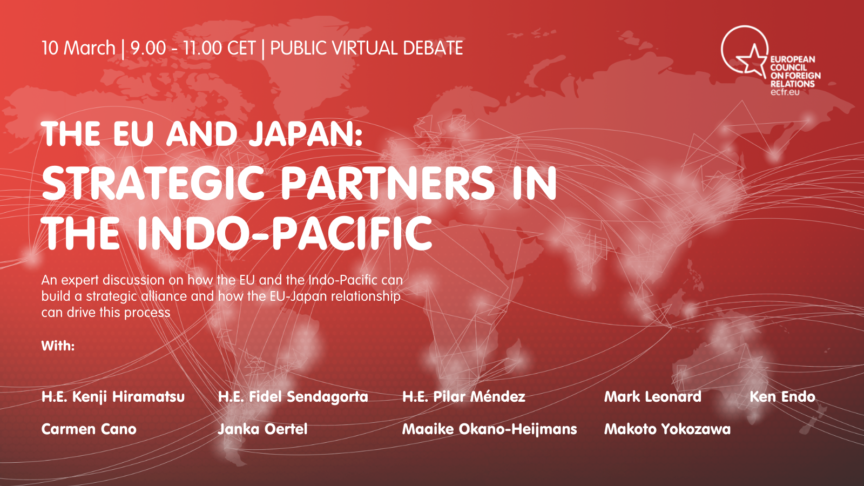
In collaboration with the Embassy of Japan in Madrid, ECFR has organised a public virtual debate to explore how the EU and the Indo-Pacific can build a strategic alliance and how the EU-Japan relationship can drive this process
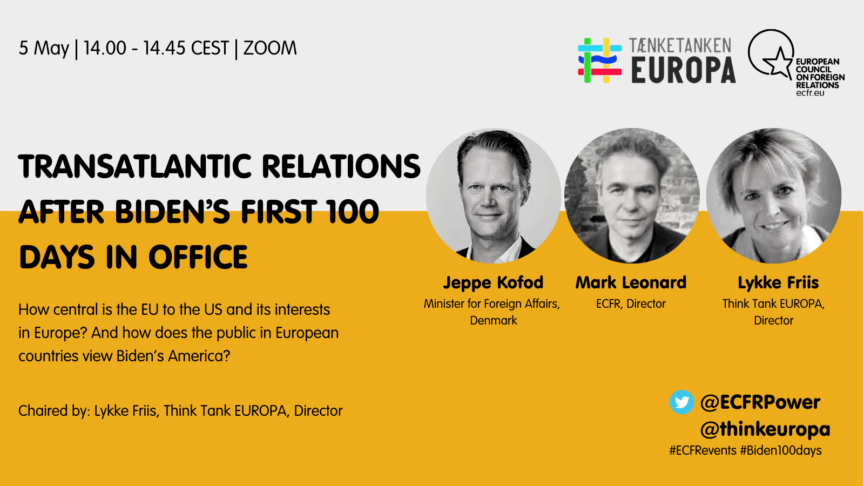
How central is the EU to the US and its interests in Europe? And how does the public in European countries view Biden’s America?
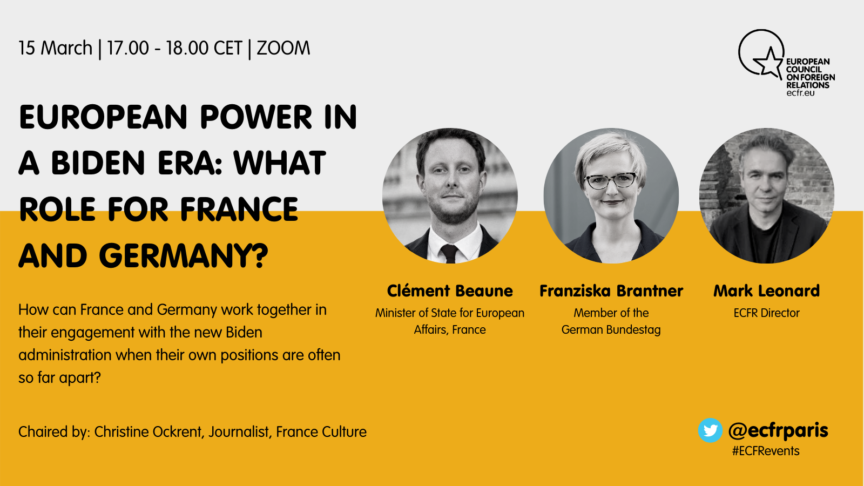
ECFR’s latest polling finds that Europeans celebrated Joe Biden’s victory but are sceptical that we will see a global resurgence of US power and…
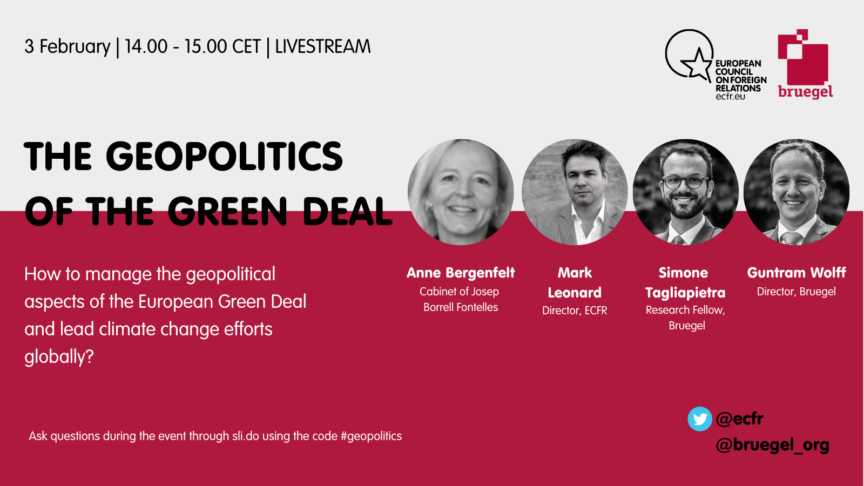
How to manage the geopolitical aspects of the European Green Deal and lead climate change efforts globally
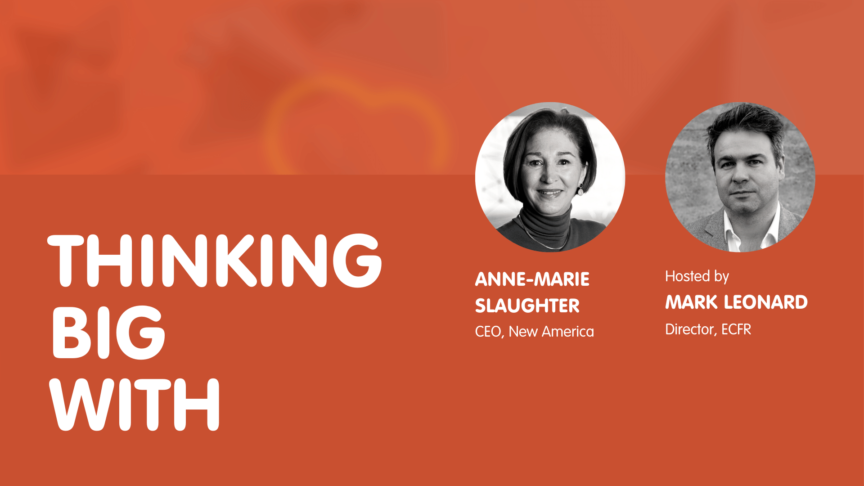
From climate, digital or security – what structures for global cooperation will emerge in a post-Merkel era and Biden presidency?
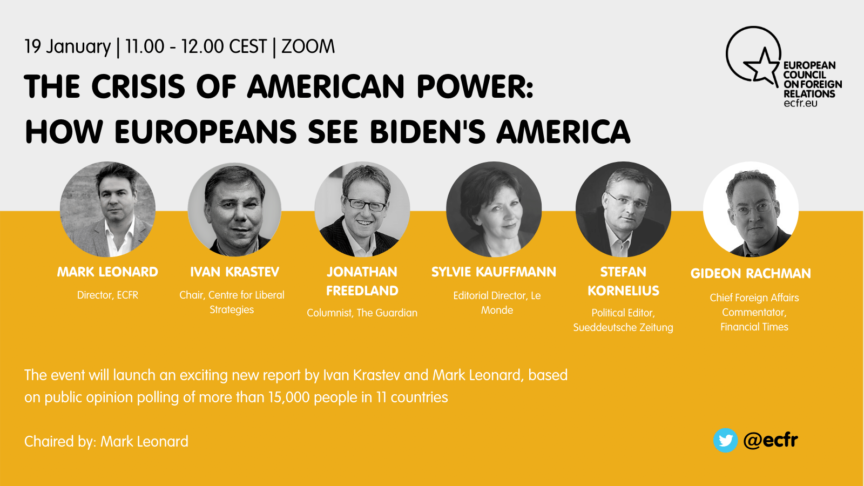
The event will launch an exciting new report by Ivan Krastev and Mark Leonard, based on public opinion polling in 11 countries
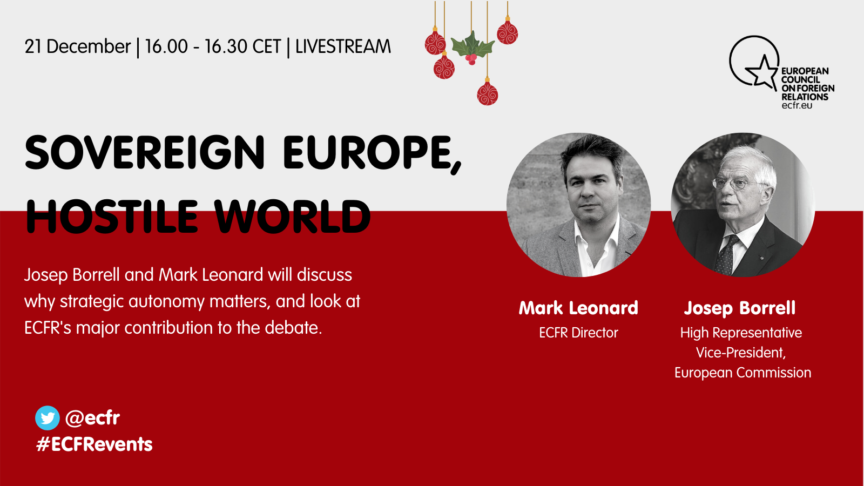
The EU’s High Representative, Josep Borrell, and Mark Leonard discussed why strategic autonomy matters